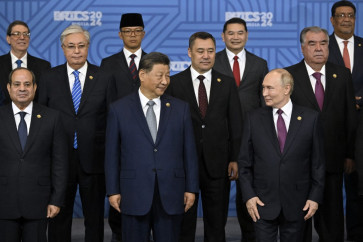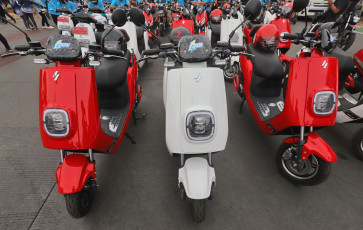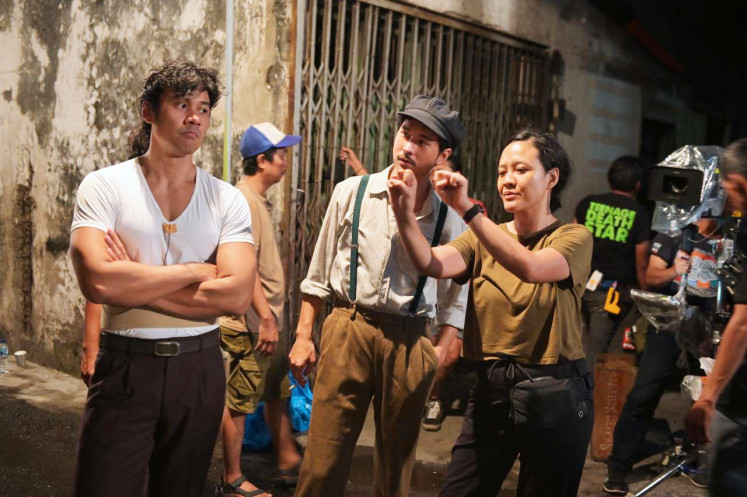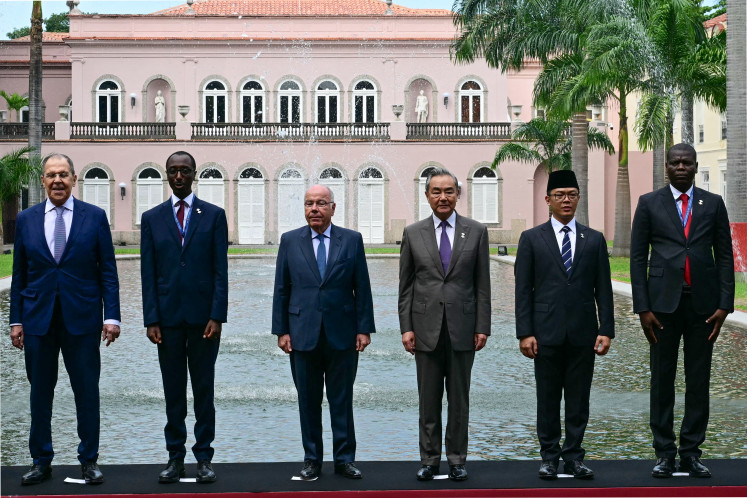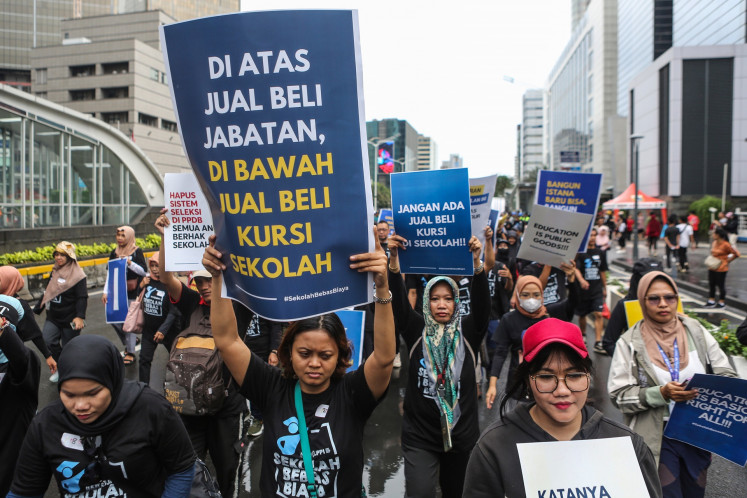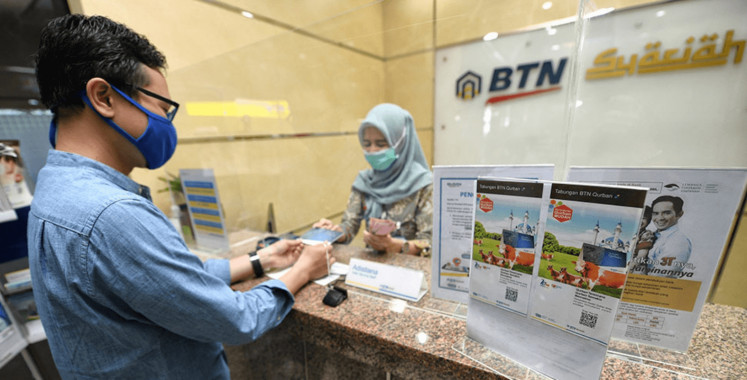Maria Hartiningsih: The pathfinder
Seasoned journalist and writer Maria Hartiningsih never stops questioning, forging pathways to comprehend the human condition
Change text size
Gift Premium Articles
to Anyone
 Maria Hartiningsih (JP/Donny Fernando)
Maria Hartiningsih (JP/Donny Fernando)
M
aria Hartiningsih has extensive experience as a reporter for prominent Indonesian daily Kompas from June 1984 to December 2015. Her entire journalistic career was aimed at providing portrayals of some of life’s ugliest occurrences. It was not always easy, but she kept moving forward.
Her outstanding works have a common signature in the form of the intimate portrayal of human suffering caused by structural injustice.
Among her published articles are stories on Chinese-Indonesian rape survivors of the May 1998 riots. She also wrote down her experiences working as a volunteer in Mother Teresa’s Home for the Dying and Destitute in Kalighat, India, with her colleague Myrna Ratna in 1990.
She has also immersed herself among the urban poor to practice what is termed ‘empathy journalism.’ Her consistency in writing articles that uphold and educate on human rights earned her the prestigious Yap Thiam Hien award in 2003. Introduced in 1992, the award has been influential in the efforts to increase the awareness of human rights in the country.
Maria actually has a wide area of interests, having also interviewed and profiled figures like physicist Jorga Ibrahim and writer Seno Gumira Ajidarma.
She is also interested in spirituality, as seen in her new book Jalan Pulang (Road Home), published by Kepustakaan Populer Gramedia. The 461-page book chronicles her experiences of being a journalist for three decades, building a narration around her spiritual pilgrimages to five different sojourns: Santiago de Compostela in northwestern Spain, Lourdes in southwestern France, Plum village in France and Mostaganem and Oran in Algeria.
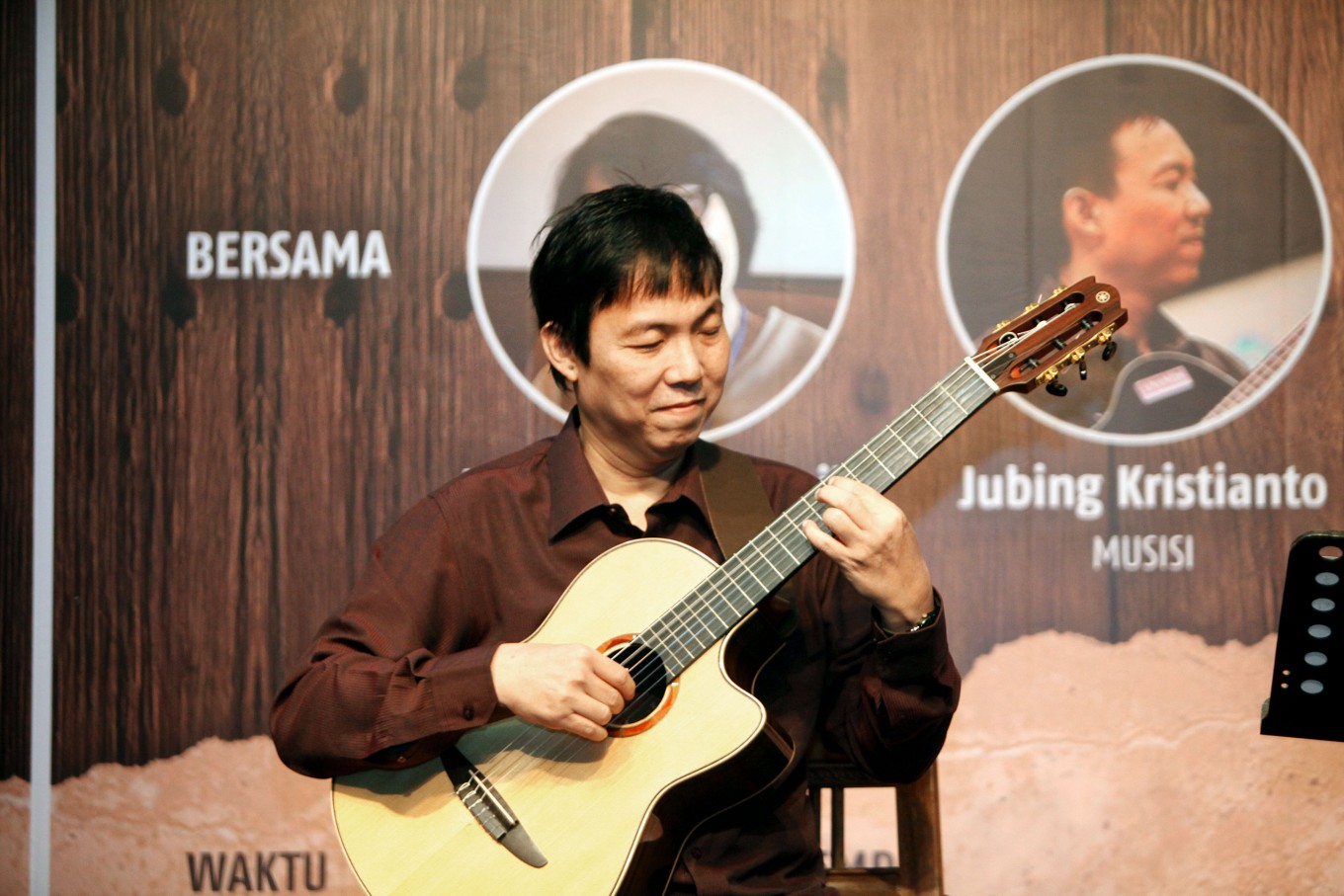
(Read also: Seno Gumira Ajidarma: No rest for the wicked)
Those stations embody traditions of Catholicism, Buddhism and Islam, respectively.
In the book, she frequently talks about journalism being a vocation that keeps calling her.
“However, I can’t identify exactly when the vocation, or the drive to cover issues related to injustice, starts calling me. I just feel a magnetic pull toward these issues,” Maria wrote to The Jakarta Post in an email. “However, I think we all have a sense [of the fact] that injustice has always been interwoven with human life; that the marginalization of certain groups has always been tied up with societal and communal lives,” she said.
She regretted that some people were segregated by their own group-led self-righteousness, even when discussing justice, human rights and tolerance. “For instance, some people could accept cultural pluralism, while finding it very difficult to comprehend diversity in terms of gender identity and sexual orientation,” said Maria, who earned a Master’s degree from the University of Indonesia’s (UI) prestigious gender studies program.
The 62-year-old writer said her work as a journalist at Kompas constantly challenged her to explore these issues, feeding her enthusiasm.
Retirement might have been a blow of sorts for Maria, but it was not the end of her journey.
“I was at a loss when the time came for me to leave Kompas. I felt as if I was losing the identity that had made me felt at home; a home that gave me freedom to be my own person and perform my life’s duty for 31 years. That crisis had given birth to Jalan Pulang,” she said. The crisis also forced her to finally confront questions that had been on her mind her whole life: about who she essentially is, her true purpose in this life and where she’s going next. “I’m not a person who takes things at face value. I always need to dig deeper, beyond what I see, read and feel by reading and discussing with other people,” she said.
(Read also: Bonnie Triyana: Learning about today's society from history)
Maria believes that these intellectual pursuits have to be complemented by spiritual activities like meditation, as human knowledge definitely has its limits.
In Jalan Pulang she wrote: “I have abandoned religious traditions filled with dogmas in the shelves of history”. This is why she opens herself up to various religious traditions. Above all, the Javanese spirituality and wisdom that she learned through her mother’s bedtime stories is something that serves as a guiding light for her to this day.
“I always remember this piece of wisdom, translated loosely from Javanese: In order to find salvation, we must be aware that we will reap what we sow. Evil, albeit being covered with thick layers, will be uncovered in the end. Disgrace is like a decaying object: Although you spray it with perfume, you can’t disguise its unpleasant stench,” she explained.
The desire for the truth is evident in her work as a journalist.
“Journalism isn’t as simple as merely covering both sides, moreover when it only seeks to pit people or parties that are in vehement disagreement with one another. Journalism has to be able to unravel any subject matter to the core,” she explained.
“This is why, journalists are not only required to outline elements of ‘how’ and ‘why’ in an excellent manner, but they also must have a strong sense of justice and deep comprehension of human rights, so that they know where they should stand.”
In order not to get lost in the ocean of information and competing agendas, journalists must engage in lifelong learning, Maria says. This constant learning also humbles the soul, making us aware of how insignificant and small we are in the face of this vast and complex universe. This awareness, in turn, will refine our compassion and automatically make us side with the oppressed.
She said, for instance, that she had just recently updated her knowledge on issues surrounding the oppression of people identifying as lesbian, gay, bisexual or transgender (LGBT), in keeping with contemporary developments of human rights issues.
Her battle to defend human rights, however, has not always been easy. When she wrote about sexual violence against women in former military operations areas across Indonesia, somebody intimidated her through phone calls and text messages. Driven by her convictions, she chose to ignore these threats and moved ahead with her stories.
She said that as a journalist, you might not be able to attain conventional measures of success like fame, structural position or money. The wisdom gained from years of experience being a journalist, however, will help you strike spiritual gold.
“I love reading. And I’ll never stop writing, although I’m still not sure which subject I’m going to write on next,” Maria said.
She is still treading her path.


